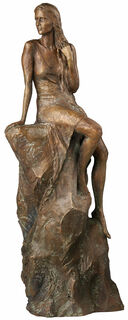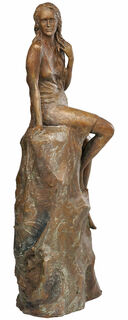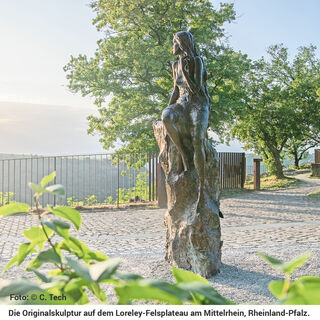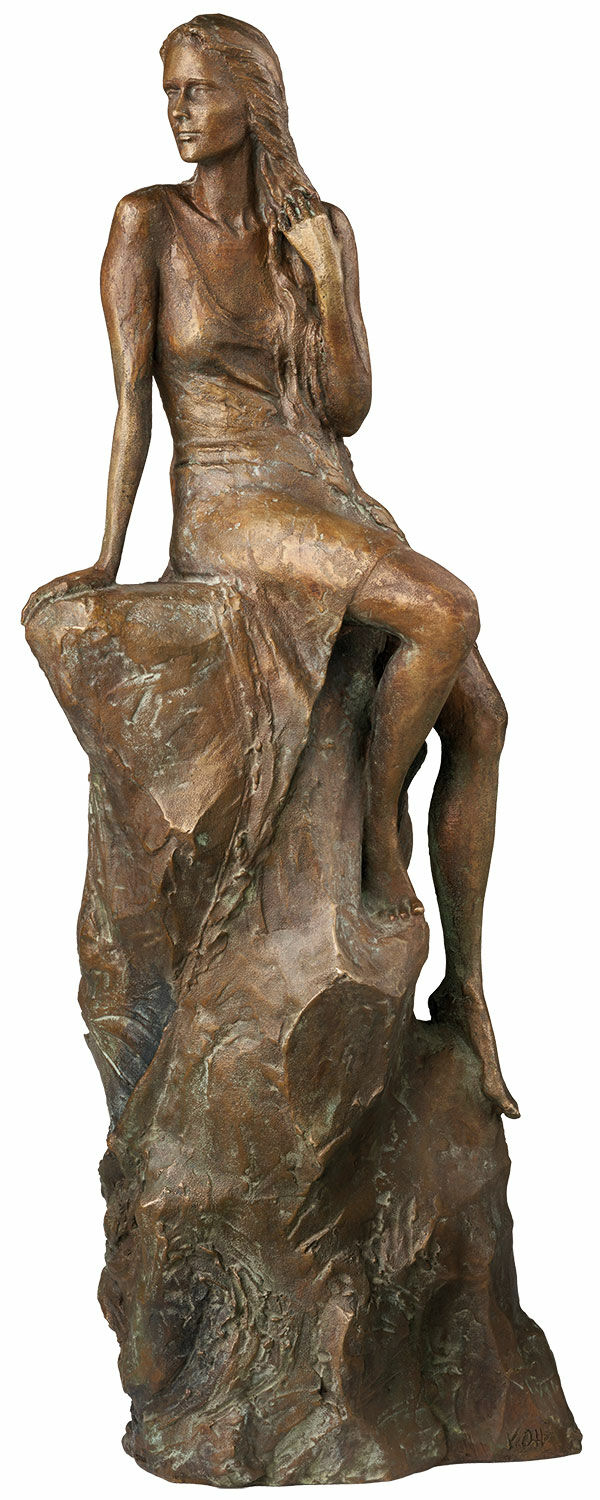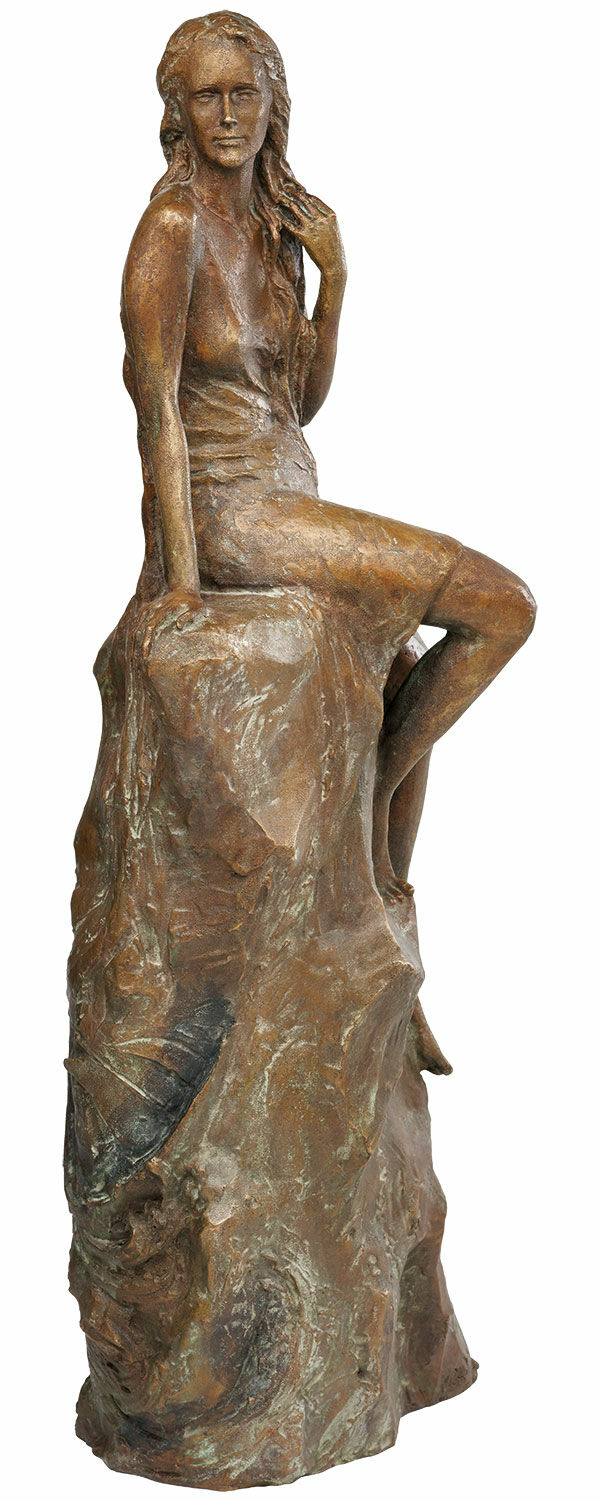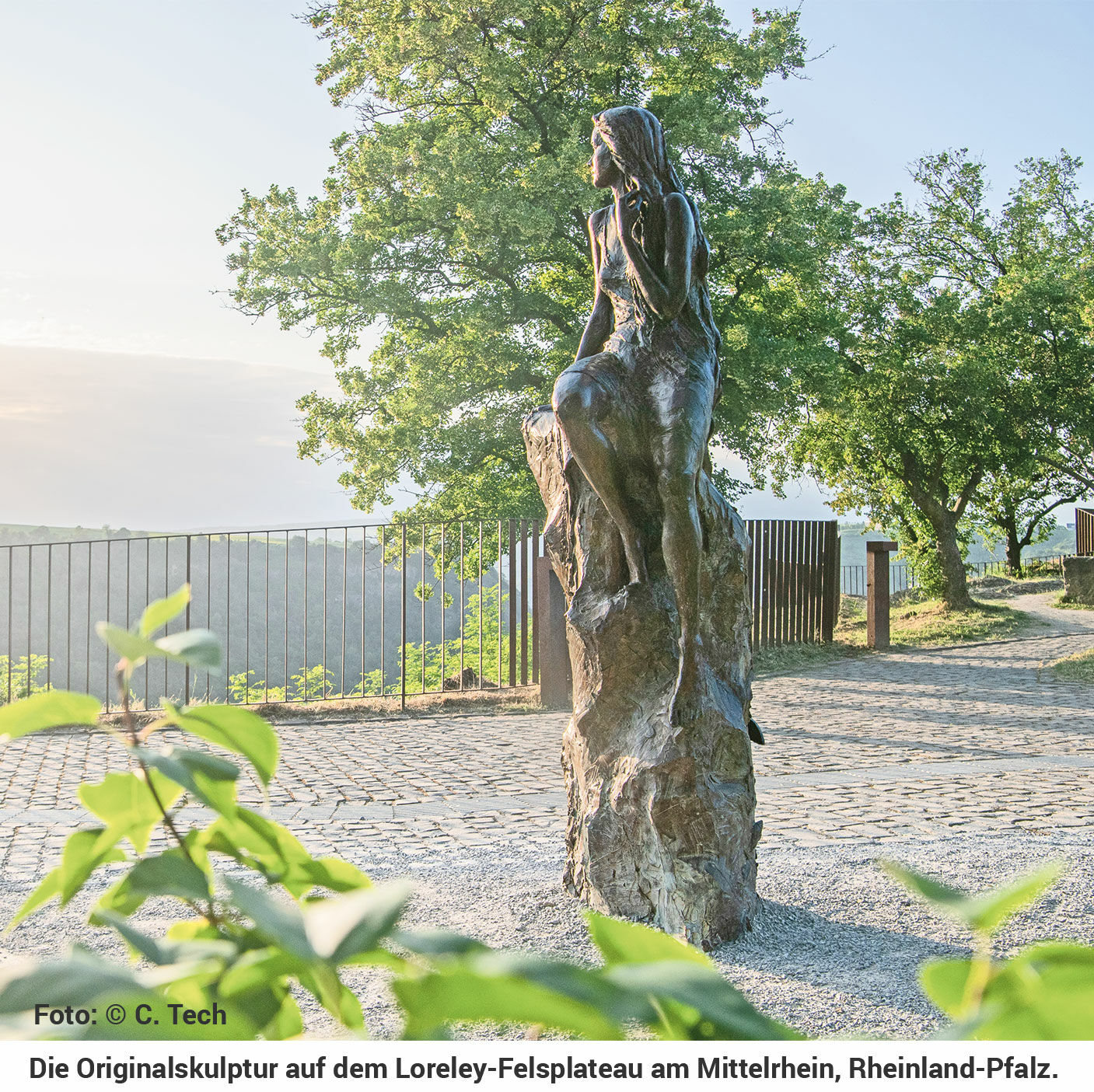Sculpture "Loreley" (2023), bronze reduction
Sculpture "Loreley" (2023), bronze reduction
Quick info
ars mundi Exclusive Edition | limited, 300 copies | numbered | signed | hallmarked | certificate | bronze | chased | polished | patinated | reduction | size approx. 47.5 x 16.5 x 13 cm (h/w/d) | weight approx. 8 kg
Video
Detailed description
Sculpture "Loreley" (2023), bronze reduction
The story of the Loreley, combing her golden hair and luring ships to their doom, is one of the most well-known German myths. It gained worldwide fame, at the latest in the form of the song by Friedrich Silcher with lyrics by Heinrich Heine ("I don’t know what it could mean..."). However, the story is not a "fairy tale from ancient times", as Heine put it. In its known form, it sprang from the imagination of the Romantic poet Clemens Brentano and has since become deeply ingrained in the cultural memory of the Germans. Loreley has inspired numerous works in literature, music, and visual arts.
For St. Goarshausen, there are good reasons to erect monuments to Loreley: She has made the place world-famous and an attraction. One statue has been in place at the foot of the rock for a long time. Since spring 2023, there is a second one in a much more prominent location, on the Loreley plateau itself. The 2.20-meter-high sculpture is by Berlin sculptor Valerie Otte, whose design won a national competition with subsequent public participation, beating more than 50 other competitors.
Valerie Otte portrays the beautiful Loreley in a classic pose on a rock pedestal and equips her figure with several attributes from the Loreley story. Her flowing hair resembles a river. However, the artist in her version of Loreley emphasises less the terrifying danger she represents to sailors according to the legend. In her own words, she tries to show a "feminine view of Loreley" - as a woman who mourns her lover and is "deeply lost in her thoughts."
Original: 2023, bronze, height 220 cm, Loreley rock plateau on the Middle Rhine, Rhineland-Palatinate.
Sculpture in fine bronze, cast using the Lost-Wax-Process, chiselled by hand, polished and patinated. Moulded from the original and reduced in size (reduction). Limited edition of 300 copies, numbered, signed and hallmarked with the foundry and ars mundi stamp. With numbered certificate of authenticity and limitation. Size approx. 47.5 x 16.5 x 13 cm (h/w/d). Weight approx. 8 kg. ars mundi Exclusive Edition.
Customer reviews
Auch die Loreley ist wieder eine sehr schöne Arbeit von Valerie Otte. Sie schafft es immer wieder Ausdruck, Persönlichkeit und den gewissen Moment in Ihren Skulpturen festzuhalten. Ein echter Hingucker!
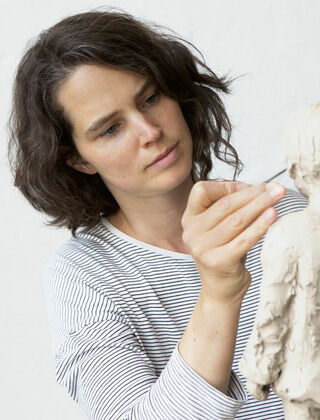
About Valerie Otte
Insight into the human soul
Otte's art can be described as a play of the eyes at distance, which is a classical description for figurative sculpture. The rule: Close observation. In her works, the artist translates everything that she saw in the world as a quiet emotion, a small gesture or a moment of truthfulness. The viewer then "reads" these traces cast in bronze and soon no longer sees mere sculptures but personalities. It is a game that educates - not only for art but also for the world.
Valerie Otte (born in 1977) studied sculpture and art history in London and Berlin. She followed up with a diploma in product design in Potsdam – this path describes perfectly the approach and versatility of her work.
Otte's work as a sculptor in her Berlin studio is primarily figurative. Her bronze figures are rarely actually portraits (although she has made and continues to make some portraits from models). They are sensitive character studies of great emotional and psychological depth, which allow the viewer an insight into their inner lives without exaggerated "posing", simply through quiet suggestion and barely perceptible gesture. In the process, Otte's figures usually rest within themselves so that the viewer almost believes witnessing an intimate moment.
An alloy of copper with other metals (especially with tin) used since ancient times.
When casting bronze, the artist usually applies the lost-wax technique which is dating back more than 5000 years. It's the best, but also the most complex method of producing sculptures.
First, the artist forms a model of his sculpture. It is embedded in a liquid silicone rubber mass. Once the material has solidified, the model is cut out. The liquid wax is poured into the negative mould. After cooling down, the wax cast is removed from the mould, provided with sprues and dipped into ceramic mass. The ceramic mass is hardened in a kiln, whereby the wax flows out (lost mould).
Now we finally have the negative form, into which the 1400° C hot molten bronze is poured. After the bronze had cooled down, the ceramic shell is broken off and the sculpture is revealed.
Now the sprues are removed, the surfaces are polished, patinated and numbered by the artist himself or, to his specifications, by a specialist. Thus, each casting becomes an original work.
For lower-quality bronze castings, the sand casting method is often used which, however, does not achieve the results of a more complex lost-wax technique in terms of surface characteristics and quality.
Graphic or sculpture edition that was initiated by ars mundi and is available only at ars mundi or at distribution partners licensed by ars mundi.
Term for an art object (sculpture, installation), which is produced in multiple copies in a limited and numbered edition according to the artist‘s will.
Artist's multiples have been called the most accessible and affordable art on the market.
A plastic work of sculptural art made of wood, stone, ivory, bronze or other metals.
While sculptures from wood, ivory or stone are made directly from the block of material, in bronze casting a working model is prepared at first. Usually, it is made of clay or other easily mouldable materials.
The prime time of sculpture after the Greek and Roman antiquity was the Renaissance. Impressionism gave a new impulse to the sculptural arts. Contemporary artists such as Jorg Immendorf, Andora, and Markus Lupertz also enriched sculptures with outstanding works.

